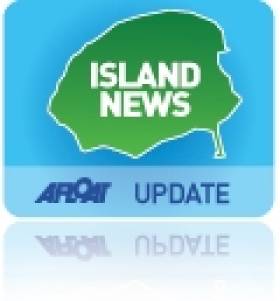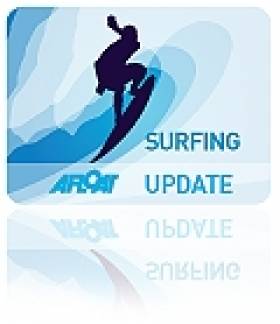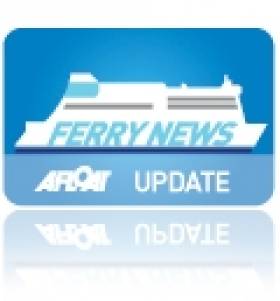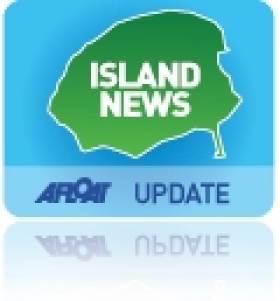Displaying items by tag: Inis Mor
Aran Islands Get Funding For New Hostel
#IslandNews - Islands development authority Comhar na nOileán Teo has been given ministerial sanction to approve funding for a new three-star hostel in the Aran Islands, as the Galway Advertiser reports.
Some €200,000 in Rural Development Funding will go to the development of the 40-bed hostel on Inis Mór which aims to capitalise on a gap in the tourism market for low-cost accommodation for families and outdoors enthusiasts alike.
"The area of cultural and adventure tourism is growing on Inis Mór," said Minister for the Environment, Community and Local Government, Phil Hogan. "This hostel will be a great addition to the accommodation that is currently available on the island."
The Galway Advertiser has more on the story HERE.
Galway Windsurfers Set Paddle Board Record
#Surfing - A trio of Galway windsurfers completed the 95km round trip to and from the Aran Islands last weekend - setting a new Irish record for stand-up paddle boarding in the process.
The Irish Times reports on the successful adventure by Dan Gardner, Daniel King and Joe Gallagher, who embarked on the challenge to raise funds for the Galway RNLI lifeboat service.
Setting out before 5.30am on the morning of Saturday 8 June, they returned to the Galway Docks before 11pm that night - stopping at the halfway mark for lunch on Inis Mór.
The trio are each believed to have covered some 4,000 strokes an hour to make their record time of 17 hours 33 minutes. The Irish Times has more on the story HERE.
In other surfing news, the Sunday Independent reports on a website that's seeking to connect surfers of all levels with the right waves for them.
Waterford-based Liam Sinnott set up Swellseekers.ie with business partner James Hassey two years ago, filling a gap in the market for booking surfing trips online at a time when Ireland was only just emerging as a world-class surfing destination.
Though the site currently only takes bookings for surfing and other watersports in the Waterford area, Sinnott says he hopes to expand his site's scope nationwide by next year to serve a growing wave-riding community of "50,000 surfing all year round".
Steep Rise Set for Aran Islands Ferry Fares
#Ferries - Ferry fares for people travelling between Inis Mór in the Aran Islands and the mainland are set to almost double from tomorrow 1 February, as RTÉ News reports.
Island Ferries founder Paddy O'Brien has cited increased fuel costs for the sharp fare rise from €8 to €15 for return trips from the largest island in the group in Galway Bay.
Fares for residents of Inis Oírr and Inis Meáin are also rising by 25% after an increase in the annual subvention to provide ferry services to the islands sought by Island Ferries was not accepted by the Department of Arts, Heritage and the Gaeltacht.
The department had failed to secure any tenders for a public service contract on the Aran Islands ferry service, the present contracts for which expire today.
Engineering Prize for Aran Islands Harbour
#ISLAND NEWS - Cill Rónáin Harbour in the Aran Islands has been voted by the public as Best Engineering Project of the Year for 2012.
Silicon Republic reports on the announcement, made at the third Engineers Ireland Excellence Awards last Friday.
The harbour on Inis Mór is twice the size of Croke Park and was constructed from more than 77,000 of stone blocks from Connemara, a choice aimed at protecting the breakwater from erosion by the sea.
Its modern design is also the result of scale model testing by a UK-based hydro lab, while during construction the process was overseen by a marine mammal observer to ensure the disturbance to local marine wildlife was minimal.
The harbour was shortlisted along with other waterfront projects such as the Clonmel Food Relief Scheme, the Giant's Causeway Visitor Centre, the Michael O'Shaughnessy Bridge over the Eglinton Canal in Galway City, the north Co Dublin Waste Water Treatment Scheme and Titanic Belfast.
Silicon Republic has much more on the story HERE.
#roundireland – An amazing last stretch performance from Inis Mor has resulted in a probable IRC overall victory in the 2012 Round Ireland Race.
Tonnerre de Breskens has been in the clubhouse for the last 12 or so hours, setting a corrected time target of 4 days, 18 hours and 20 minutes. As the wind veered to the south, turning the final stretch into an uphill slog, it looked increasingly like the Dutchmen were home and hosed, particularly as Inis Mor was battling a foul tide in her approach to Dublin Bay. However, smart navigation, tacking towards the shore from the nose of Howth and seawards when off the Muglins just as the ebb started, enabled the resilient Frenchmen to make good progress hard on the wind down the Wicklow coast and to cross the line with only minutes to spare after 4 and a half days at sea.
While most of the fleet is still at sea, it seems unlikely, given the weather conditions that a winner can emerge from the pack.
There will be some party in Wicklow tonight!

































































